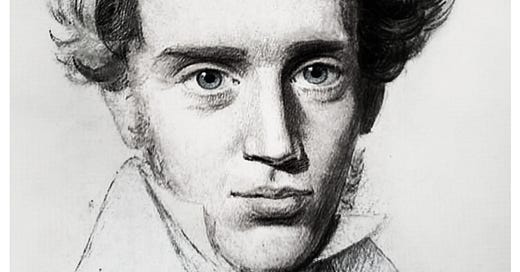Think Backwards but Live Forwards
This paraphrase comes from Søren Kierkegaard’s principle that,
“life can only be understood backwards, but it must be lived forwards.”
What he was getting at here was that our lives can only be understood by looking back at it, by reflection. And he believed that reflection was an important step in our development because it’s essentially how we gain insight about ourselves and the people around us.
But when it came to making decisions in the present, he thought that to keep thinking and reflecting were a bit over-indulgent. It’s what our culture has now given the name naval-gazing.
So, in order to not do that, Kierkegaard would say something that would anticipate Nike’s slogan of Just Do It.
Around the same time as this, Fyodor Dostoevsky also considered something similar. He said:
“To think too much is a disease.”
Here, Dostoevsky meant that you need to act out what you think, and not just think what you think.
In other words, living forward simply means this: Just trust yourself.
It’s having confidence that the lessons and wisdom you learned will have expression in your action. So given all the prior work you put in up until a single moment—all the studying, reading and reflection—it’s trusting that that will have its stamp on what you do and say in the future.
As the saying goes, what goes in is what must come out.
Malcolm Gladwell adds to this idea in his book called Blink. He writes about how the snap judgments that we accumulate over time, our intuitions, can be just as good as—if not better—than the decisions we make after carefully analyzing a situation. (Interestingly, this insight gives a legitimate argument for the old adage: trust your gut.)
Steve Jobs also lent perspective to this Kierkegaardian way of thinking. He said:
“You can’t connect the dots looking forward; you can only connect them looking backwards. So you have to trust that the dots will somehow connect in your future. You have to trust in something—your gut, destiny, life, karma, whatever. This approach has never let me down, and it has made all the difference in my life.”
Quick disclaimer before you go: this doesn’t mean that you have a license to do whatever you want and not care about the consequences of your actions. Kierkegaard also believed in personal responsibility and ethical behavior—that we’re obligated to orient ourselves in a way that favors society.




So, it is about being faithful in what we do?
Thank you. Great meditation to live by and to start this day off with.